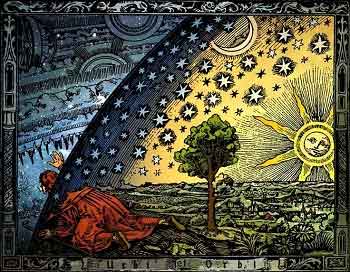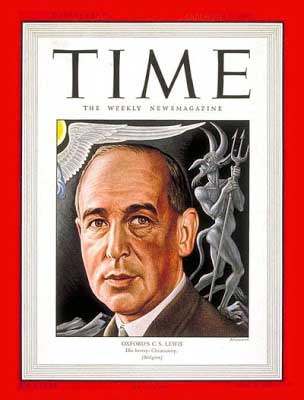
Steve Hays of Triablogue is a young-earth creationist with whom Iʼve been having a bit of a discussion since I too used to be a young-earth creationist. In his blog entry, “Babel, Babble, & Babinski,” he told me that he read John Waltonʼs NIV Application Commentary On Genesis (2002) in which Walton pointed out that “Moses used architectural metaphors [in the creation story of Genesis, chapter 1] to foreshadow the tabernacle. That would also fit with the literary unity and intertextuality of the Pentateuch.” Therefore, the flat-earth creation account in Genesis 1 is an accommodation to Mosesʼs “flat-tent” view of the cosmos—strictly metaphorically speaking that is.
Hays also stated, “Iʼm more concerned with exegeting Scripture than exegeting Steve Austin.” (Austin is a Ph.D. geologist who is a formal member-teacher at the Institute for Creation Research, a young-earth organization).
Hays ended his blog entry with mention of the pro-evolutionary geologist Dr. Henry Gee, “who has documented at length that the fossil records is not a continuous sequence frozen in rock, but discontinuous data-points which are rearranged into a continuous sequence by a value-laden reconstruction of the record that is enormously underdetermined by the actual state of the evidence. A thousand theoretical interpolations to every isolated bone fragment. Of course, Gee isnʼt trying to undermine evolution. Rather, like so many others, heʼs trying to retrofit the theory. But to clear the ground for cladistics, he must slash and burn phenetics [=the phylogenetic ancestor-descent trees involving arrows showing which fossilized creature descended from which other fossilized ancestor], and itʼs quite a spectacle to see how little is left over after his scorched earth policy. So now we have another outbreak of the Darwin Wars.”
My response follows on those three topics that Hays raised:
Steve Austin, Kurt Wise, Henry Morris, The Genesis Flub
I brought up Steve Austin and Kurt Wise because they are two of the most prominent young-earth creationists in the entire U.S. who have also published a lot since the 1970s in creationist books and magazines. They are also among the few young-earth creationists in the world with Ph.D.s in geology and paleontology, repsectively. (Henry Morris who wrote The Genesis Flood and founded The Institute for Creation Research [ICR] only has a Ph.D. in hydrology.) I say “few” because I once checked the ICR and Answers in Genesis lists of young-earth creationists who work for both institutes and who had advanced degrees, and I counted only about 8 scientists there with Ph.D.s in geology, and no Ph.D.s in paleontology other than Wise. And they both agreed that Morrisʼs attempt in The Genesis Flood to cite the Lewis Mount Overthrust (the largest such “reversal of fossil layers” found anywhere in the world) as not a genuine overthrust, was a failure.
Yet it was Henry Morrisʼs book, The Genesis Flood, along with the founding of ICR, that is credited at ICR as being Godʼs means to bring back Flood Geology (from the grave in which it had lain since Christian geologists of the 1800s had proven it to be indefensible). Unfortunately for Morris, his book has since been thoroughly discredited, and found to consist of unchecked folk science tales, strung together with faulty photos, and mistaken geological assertions. If thatʼs the book that “God used” to give “Flood geology” a recharge (and “the book that God used to get Ken Ham [of Answers in Genesis and the Creation Science museum in the U.S.] in creation ministry”) then it seems more like the devilʼs book, full of lies spoken in Godʼs name to embarrass the Christian faith. At least thatʼs what some of my old-earth creationist friends might say. And since then, creationists have continued to back down from a host of ridiculous assertions that formerly were touted as disproving modern geology. Just read the Answers in Genesis online piece, “Arguments We Think Creationists Should Not Use.” Instead, modern young-earth creationism tries to invent accommodations with modern geological evidence of an old-earth. It does not try to disprove it like it once did. Both ICR and Answers in Genesis admit that the search for “pre-Flood” human remains and artifacts or any new startling evidence of a young-cosmos, is probably hopeless: “Where are all the human fossils?” by Don Batten (editor), Ken Ham, Jonathan Sarfati, and Carl Wieland. The final line of that article is classic: “When God pronounced judgment on the world, He said, ‘I will destroy [blot out] man whom I have created from the face of the earth’ (Gen. 6:7). Perhaps the lack of pre-flood human fossils is part of the fulfillment of this judgment?”
Or perhaps God just didnʼt want to supply young-earth creationists with the evidence they so desperately crave?
And what about the new “Creation Museum” museum opening soon in the U.S. with its exhibits of humans alongside dinosaurs? The folks who built that museum admit that pre-flood human fossils have not been discovered, but they built exhibitions showing humans alongside dinosaurs. How scientific of them!
And speaking of the age of the earth what about the evidence of an old-earth from a variety of sources like Lake Suigetsu, Ice Cores, The Greenriver formation and what about the way radiometric dating has been done on individual varve layers, individual ice layers, individual tree rings (in three known series of tree rings that each stretch back in time at least 10,000 years), individual sections of sea floor that arose via the expanding molten rifts from the center of the Atlantic as it continues to spread—and in each case the processes of lake varves forming, ice layers forming, tree rings growing, and sea floors spreading, continue to take place today at known rates of formation that show agreement with the radiometric dating of individual portions of older sections of those formation? What are the odds that a load of coincidences would match up? See here and here and here. And my own story, here.
John Walton And His NIV Application Commentary On Genesis
Walton admits in his commentary that the ancient Hebrews, and the author of Genesis, assumed a flat cosmos and a solid firmament.
Whether or not one also assumes that the creation story in Genesis may be interpreted as a metaphor of the tabernacle-tent spoken of in Exodus is another question. Such a view of the cosmos as a house or tent (built flatly and on a firm foundation) does not lay outside of ancient near eastern assumptions in general, for instance note the ‘wall-ring’ representations of the firmament lying above a flat earth in ancient Egyptian iconography, or ancient mestopotamian cosmologies in general.
And more importantly, the lack of any insight into how the cosmos is truly shaped, means that the ancients wrote and assumed things on par with the pre-scientific knowledge of their day, and not a sign that one can cite that Genesis demonstrates in was composed via special inspiration.
Henry Gee, Creationism, And I.D.
Lastly, about Henry Gee. Creationists and I.D.ists donʼt understand correctly what heʼs saying, as Gee himself has complained about numerous times, even directly to creationists and I.D.ists. I have some of his correspondence with them from 2006. Heʼs describing the difficulties of dating the exact chronological order of fossils that lay relatively close together in the geological record, and advocating a greater use of cladistics to aid in determining the order of relationships in such cases. (Note: The way evolution works is that populations split from one another, then the more robust sections of a population grow more numerous and more widely established in different places round the world, which increases the odds of the new speciesʼs fossilization, but by the time the new species has spread far and wide enough to increase its chances of being fossilized, it is not likely to simply be the direct descendant of species that precede it in the fossil record, but a cousin. Hence, Geeʼs complaint about the drawing of direct lines between species in textbooks. The actual evolutionary lines of descent are more complex, and what we have are the fossils of the most robust cousin species that were living during certain overlapping eras.)
Henry Geeʼs Response
Henry Gee (henrygee) wrote,
@ 2006-06-12 22:43:00:
“I have become somewhat irked lately at the way that some creationists continue to attribute beliefs to me to which I do not subscribe. For example, creationists of the ‘intelligent design’ tendency have used my book Deep Time (sold in the US as In Search of Deep Time) to suggest that whereas I donʼt support their views, my own work somehow legitimizes them… even though I have explicitly refuted this attempt at hijack, many years ago.
“I pointed this out recently to creationist Jonathan Witt at ID The Future and as a result have had a civil and gentlemanly email exchange with him (and by extension his colleague Jonathan Wells, who has also quoted from my book).”


